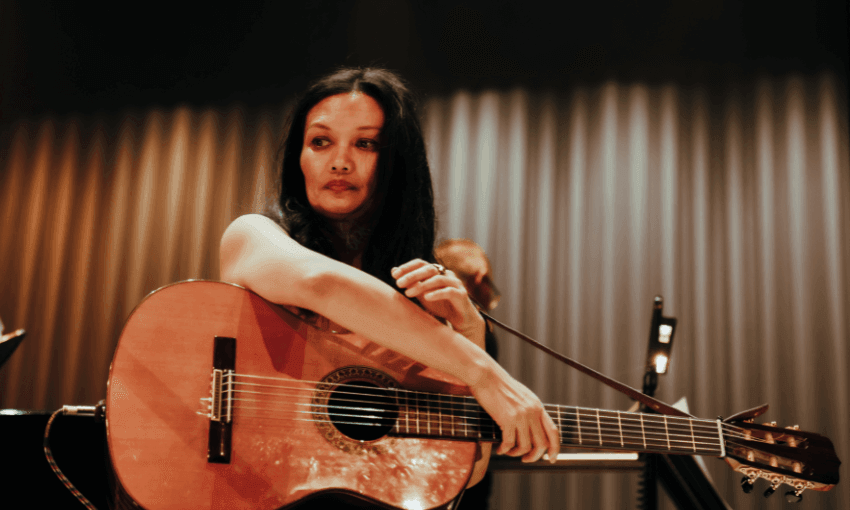I Carried This tells the stories of five of the estimated 100,000 New Zealand women who were made to give up their babies in the 1950s and 60s.
On a crisp June Wellington night, I call my 18-year-old daughter for a chat. I tell her I’ve watched a powerful play based on the true stories of five unwed women who fell pregnant in the 1950s and 1960s and had their babies taken off them when they were forced to give them up for adoption. “What do you mean?’’ she asks me from her university hall. “That’s not possible?’’
Yes, it does sound almost unbelievable when you look back on it, that women who fell pregnant without a husband – or the promise of a husband – in the pre-pill and pre-DPB area generally weren’t allowed to keep their babies. Instead, they were typically banished to farms, to homes for unwed mothers, or to stay with relatives in the country, and they often had to give birth in secret away from their own families.
An estimated 100,000 New Zealand women adopted their babies out during this forced adoption era. They usually lost their babies to a married couple because there wasn’t an option B, unless the man who impregnated the woman agreed to put a ring on her finger.
Wellington playwright Nicola Pauling’s documentary theatre work, I Carried This, is a play that really leaves you sitting on the edge of your seat. She rightly thinks our government should follow Australia and issue these women a big apology for human rights violations – and the actors call for this at the end of the one-hour work. More than a decade ago, Australia’s then prime minister Julia Gillard apologised to birth mothers, fathers and the babies who were handed over to married couples in Australia’s forced adoption era. The Australian government has also financially compensated those birth mothers whose babies were whisked off them often while their breast milk was just letting down, while the fathers – the men who got these women pregnant – often continued their lives as though nothing had happened.
In Pauling’s play, we see the stories of five birth mothers cleverly acted out by three actors – Pauling, 78-year-old Hilary Norris, and Mycah Keall – who show how the story of adoption changes over a woman’s lifetime. Just like childbirth, no single story is the same.
Based on Pauling’s interviews with birth mothers in their senior years, there’s an overwhelming theme of loss for the five women the play is based on. Patricia can only handle it by meeting her daughter once and then wanting nothing to do with her. Mary never knew she’d even had sex and realises, at age 80, that her illegitimate pregnancy came from what we today call date rape. One of the most heartbreaking stories is shown at the play’s end when we meet Jane, who is not allowed to see her son after his birth and tries to contact social workers to say she wants to keep her baby, only to be told it’s too late and he has been adopted out. Jane spends 47 years searching for him but finds it’s too late because he has died from suicide.
Norris delivers a moving performance when she acts as the older Jane and says: “Women made a terrible mistake… we made a mistake and had to pay the penalty. Had to be quiet, had to shut up, couldn’t speak out. Oh, we had to control lives for everybody around us. We had to keep lives as normal as it could be for everybody, like the husbands, who were better off not knowing, the children who were never told. But we carried this. We went for decades walking with shame or grief or guilt or loss, but we carried it quietly.’’
I Carried This is about misogyny and female control. It’s telling when a male doctor tells one of the women she must breastfeed the baby she is about to lose while she is in hospital – and he also lies that she will see her baby again. She never does.
The birth mothers often spent their lives hoping to reconnect with the child they lost. If they did, it was often complicated. As one puts it, she was searching for the baby she gave away and didn’t recognise the adult child she later met.
Their babies were born in the illegal abortion era and there are stories we don’t see in this play: the pregnant women who had to go across to Australia in the late 1960s to get an abortion or have a back street one here; we only get a glimpse of what adoption is like for a child, who often struggles with a lifetime of feelings of rejection and loss of identity.
While we’ve progressed since then, I Carried This also reminds us that women’s reproductive lives continue to be ruled by the patriarchy. Women in some parts of the world are banned from getting a legal abortion and, everywhere, contraception still remains a woman’s responsibility.
I Carried This (written by Nicola Pauling and directed by Jacqueline Coats) is on at Hannah Playhouse until Sunday, June 16.



